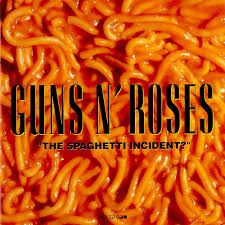There’s lots of advice about “style” out there, and most of it is bogus. Style can’t really be taught, so I hereby give you a full Papal dispensation to ignore it. All you want to do is convey the maximum of information in the minimum time, so the best style is no-style. It’s very Zen, grasshopper.
Every sentence in your first draft should follow this simple pattern: subject-verb-object. You may not know what these are, so I’ll infuriate every grammar Nazi on the internet with these quick’n’dirty definitions:
The subject is what does the action. It’s not what the sentence is about. Both of the following sentences are about John, for instance, but “John” is only the grammatical subject of the first:
John threw the ball.
The ball was thrown by John.
In the second sentence, “the ball” is the grammatical subject. It’s what does the action (for a very awkward value of “does”).*
The verb is the action itself (“threw” and “was thrown” in our examples).
The object is what receives the action (e.g. “the ball”).
Yes, I know, this all sounds awkward and clunky and horrible. It is. But combine it with the following tips, and it’ll make a lot more sense.
1. Make the sentence about the grammatical subject. John is the guy who is throwing the ball, so make “John” the grammatical subject.** “John threw the ball,” not “The ball was thrown by John.”
2. Never put anything in front of the subject. If you worry about “style,” you’re tempted to throw in little curlicues like this:
A former baseball player, John threw the ball extremely fast.
Don’t. If it’s important for your audience to know that John could throw fast because he’s a former baseball player, make it two (or however many) sentences, each one beginning with its subject. Like so:
John is a former baseball player. John threw the ball extremely fast because of this.
3. One subject, one object, one verb. Yes, our two-sentence example up there is clunky. But this is your first draft. You’ll fix it when you keep the Fourth Commandment (Thou shalt REVISE thy work). For now, stick to the pattern, as it will make revising a lot easier (trust me). Obviously there are exceptions — you can’t really write “Lewis went down the river. Clark went down the river.” for “Lewis and Clark went down the river.” But unless it’s that obvious, don’t do it.
* You — or, most assuredly, your graders — will also notice that “The ball was thrown by John” is also the dreaded Passive Voice. There’s no surefire way to avoid passive voice — if there were, I’d be the author of the bestselling English composition textbook and be blogging this from the deck of my yacht — but there are some useful hints we’ll cover in a later post.
** Hey, whaddaya know — there’s Passive Voice Avoidance Tip #1!

